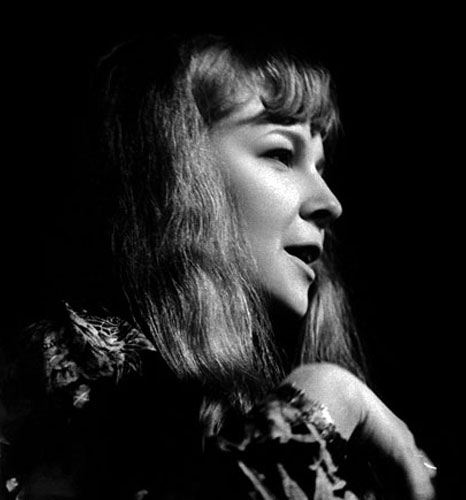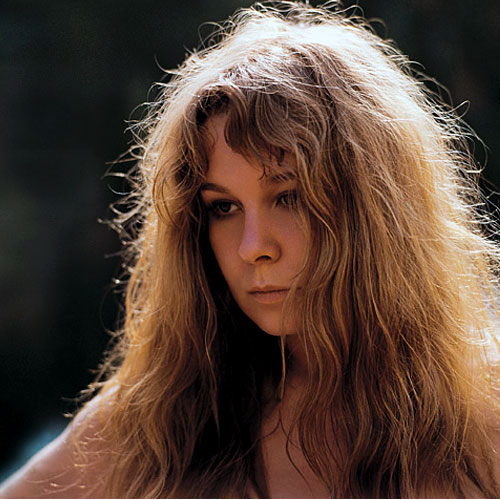Sandy Denny Remembered
RENDEZVOUS, THE ALBUM
Sandy Denny and Trevor Lucas left Fairport Convention at the end of 1975 and Denny embarked on Rendezvous in the spring of 1976. Trevor Lucas produced the album with a contemporary rock sound designed to turn Denny into a mainstream act. The album is now generally thought to be overproduced with an excess of Strings, backing vocals and instrumental overdubs. Despite this the album is felt to contain some of her finest compositions, and showed someone continuing to widen and deepen their song writing craft, and who was responsive to new influences; Gold Dust with its Caribbean feel, the soulful torch songs Take Me Away and I’m A Dreamer and most ambitious of all, a seven minute orchestral tribute to the English pastoral symphony in the style of Vaughn Williams called All Our Days recorded live at CBS Studios.
The punishing world tour with Fairport Convention throughout 1974 and 1975 coupled with Denny’s heavy drinking and smoking inevitably took a toll on her voice; and by now much of its bell like purity had gone, but the control and power were still there along with her subtle phrasing and characteristic grace notes. For the first time in years Denny recorded portions of the album live including an extraordinary session at Basing Street on April 25 where Full Moon, No More Sad Refrains and I’m A Dreamer were cut live with the band and strings in a single day. A selection of cover versions were recorded for the album notably I Wish I Was a Fool For You (For Shame of Doing Wrong) by Richard Thompson (The only post-Fairport recording she made of a song by her former bandmate) Silver Threads and Golden Needles (which had been attempted years earlier for the first Fotheringay album in 1970)[7] Losing Game by The Flying Burrito Brothers and Lowell George’s Easy to Slip the latter two being disgarded from the final record. Several Denny originals were also recorded and not used, including Full Moon, By the Time It Gets Dark and Still Waters Run Deep.
The majority of the album was recorded in a week of sessions between 23 April and 7 June at Basing Street and Island Studios; further sessions from the 9th to the 18th of June were largely devoted to extensive mixing and overdubs. The album originally entitled Gold Dust was finished by July and due to come out in October 1976, but Island repeatedly delayed the release and it finally came out in May 1977 when Denny was pregnant and unable to undertake a promotional tour.[10] During this delay Denny returned to the studio to record a cover version of Elton John’s Candle in the Wind, which was added to the album in place of her own composition Still Waters Run Deep: Both tracks were later released on a single One last session, to record Bryn Haworth’s Moments, took place days before the album’s release, and this was Denny’s final studio recording.
Photo: Fin Costello
The album was the only solo album of Denny’s not to be issued in a gatefold. However, there was a black card inner sleeve with the lyrics reproduced in white type. The cover image was a composite of a location shot of Denny waiting on a street and a close-up studio portrait of her with heavy eye make up and wearing an auburn wig.
Having relocated to the village of Byfield in Northamptonshire in the mid-seventies, Sandy gave birth to her only child, a daughter called Georgia, in July 1977. A UK tour to promote Rendezvous was undertaken in the autumn and marked her final public appearances. The closing night at the Royalty Theatre in London on 27 November 1977 was recorded for an intended live album, Gold Dust, which was eventually released in 1998. Sandy Denny died the following year in April 1978 following complications after a fall.
“She had this amazing talent, this incredible voice - but she always wanted to be pretty and fanciable,” says Linda Thompson. “And she was! But she never thought she was, because she wasn’t conventionally pretty. And these were the 60s, when no one ate anything and they were all stick thin. She’d go on these daft diets - we were all on slimming pills, and God knows what - and she’d get thinner, but she’d put it on again. And she never quite got over that. It was so ridiculous: we were all slaves to it, but it was a real burden for her.
“But some of the things people said were unbelievable. They’d say things like, ‘her sweet, chubby face’. I think that was very hard indeed. But also, she could always leave the room with the most interesting guy around - if he had a brain. Because not only was she attractive, she was so smart and so talented. I think she had decided long before that she was more witty and talented than any of these dolly birds. And that’s how she wowed men. She had a thing with Frank Zappa, whenever he was in London. She went out with some pretty remarkable people.”
|
|

|

Depeche Mode |
LATEST GALLERY IMAGES

Charity Workers Massacred 
We Bombed A Hospital |
|
|




